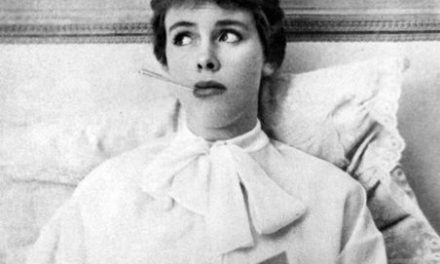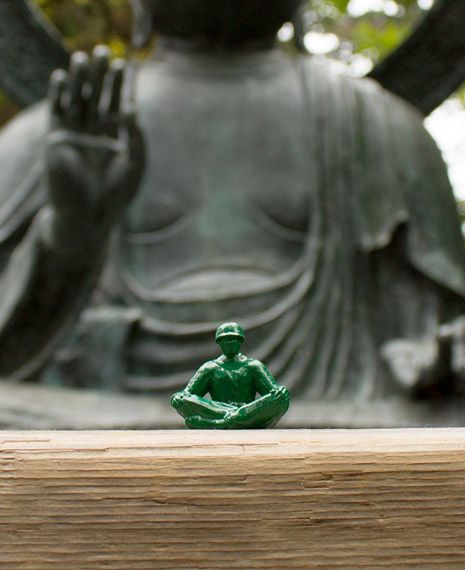By Dana Gornall
Death has taken its slow walk past me many times.
This thought settles into my brain as I stand over the stove cooking dinner and thinking of Halloween approaching. Halloween, depending on your tradition and history, has many images associated with it. For me, my mind conjures up pumpkins and jack-o-lanterns, bags and buckets of candy, costumes and chilly walks from house to house.
But Halloween is also a holiday that is marked to remember those that have passed on—a remembrance and honoring of the dead.
Flipping over the potatoes in the frying pan on the stove, my thoughts circle round and settle on the idea of death. It is a subject that makes most of us shift around uncomfortably. The thoughts cross our minds once in awhile, yet we try not to focus on any one for too long, lest it catch up to us. Some people I know do not even like to hear the word mentioned, superstitiously believing that even the utterance of its consonants and vowels would somehow magically bring it to our door steps.
I turn down the heat on the stove and rest my back against it, feeling its warmth. A slideshow of faces and memories flip through my mind.
I remember being at my grandma’s house on a typically warm, early summer midwestern day. I can’t place how old I was, but I remember running around her house in circles as I fast as I could go, counting laps and imagining myself to be some sort of Olympic runner. Winded and sweating, I pushed the screen door open and exuberantly announced that I had just ran very fast around the hour X number of times.
“Shhh,” my grandfather scolded. “Your grandma is talking to someone.” I looked past his shoulder to see her hang up the phone and my mother resting her hand on my grandma’s back. She was bent over crying—something I had never seen.
“Your Aunt Dorothy passed away,” he told me. I shuffled into the living room. We all knew she was ill. She had been diagnosed with bone cancer not that long before. I sat down at my grandparent’s organ and flipped the small plastic switch on, watching as it glowed orange. Resting my fingers over the keys I started plunking out the only song I knew at the time: Oh When The Saints.
C, E, F, G…C, E, F, G…I recited the notes to myself.
“Shhh!” My grandfather came back into the room. “Not now. Your grandmother is sad.” I clicked the button to off and sat, unsure of what to do.
“Want to see me run around the house, Grandpa?”
“Sure, yes go run around the house,” he halfway answered. And I flew out of the door running as quickly as I could.
I didn’t know what to expect with a funeral. I had only seen them on television and in movies. My mom had pulled out my Easter dress which was white and dark pink. “I thought we were supposed to wear black to funerals?” I asked. “This will do,” she answered, “children can wear whatever they want.”
I remember the strong overpowering floral scent of the funeral home, the hushed tones of people talking and that my aunt didn’t look anything like the plump, jovial woman from my memories, but instead lay thin and frail, with a thick dark wig covering her naked head; she looked like a stranger.
It wasn’t long after this that my grandfather on my father’s side also passed away. Again, I found myself unable to know how to respond or what to do. We had just visited him earlier that week, and now we would never see him again—he had slipped away quite briskly and unexpectedly into some unknown place. I was told he was in Heaven, surrounded by his family and friends that had passed on and I wondered if he could somehow still see or hear us.
This time it was my father I saw crying, which I had never seen before. I remember thinking it was an odd thing to watch him cry. He was so tall and quiet normally. Now his head bowed over my uncle’s back, deep heaving sobs filled the room and I stood nearby invisible and slightly detached, the way children can be sometimes when unsure of what to do.
I remember approaching the casket and thinking that he looked as though he were sleeping. I could have sworn I saw his chest moving up and down as he appeared to be breathing. I remember asking one of my aunts if he had shoes on under the blanket and her pulling it back to show that he had not.
I remember hearing my grandmother wail as we stood outside in the cold November air, saying we couldn’t leave him out there all alone and that is was so cold. I remember being so perplexed at witnessing all of these adults crying and looking so afraid and small.
It was such an odd ritual, really. People donning dresses and suits, standing in a neat line formed near the casket as others passed through, one by one, shaking hands and giving hugs. Faces that had been drained of color and streaked with dried, salty tears looked around blankly as the room filled and emptied and filled and emptied, all the while the thick floral scent covered the room like a fog.
Since then I have stood by and watched death cross over my path again and again—each time so very different, each time leaving me in that place of odd ritual. A friend I had gone to high school with—the class homecoming queen—tragically was lost in a car accident. My father-in-law passing in his sleep, my mother-in-law taking her last breaths as we stood near her bedside, my sister-in-law, leaving behind her young daughter in our care, my grandfather lying in a restless coma, my grandmother and then my other grandmother.
These images burn inside me now as I stand next to the cooling stovetop lost in thought.
It occurs to me that at each one of the events—each ritual, each wake—I have sat stoically watching all those around me crumbling in tears. Normally a sensitive person, I have been known to cry during sad movies or even touching McDonald’s commercials, yet when placed in a setting so raw—so final—I’m left standing nearby invisible and slightly detached, with an uneasy hole in my spirit.
I don’t know what happens after the body has ceased to breathe and the heart has slowed to a stop. I know there are so many theories. Heaven, Hell, Purgatory, Summerland, Hauntings, Collective Consciousness, Re-birth, Reincarnation: all words we have designed and formulated, attempting to create a place on our imagined number lines.
There has to be a next step, right? Life is linear, is it not? We are born, we live, we grow, we cross each threshold one by one in singular fashion so there must be a next after death.
I pull the dishes out of the kitchen cupboard and slip the now-cooling food onto each plate. Picking up my mug of tea I watch as the liquid swirls into a spiral and I call my children into the room for dinner. While it is true that none of us know what comes next, and maybe none of us understand the finality of life or that some of us push away these thoughts with unease, life still goes on somewhere, somehow.
I see it in my children’s faces. I hear it in the stories of my family, when we sit in circles around the table and recall memories from the past. I’m touched by it in fading photos, shining back at me behind plastic pages. Life beginning, over and over again, each one building on the next.
Spiraling, generation after generation, story after story, bloodline after bloodline it becomes richer than a linear life.
I sit around the table now, surrounded by my small family and we chat and we laugh. We talk about Halloween and costumes and jack-o-lanterns. We eat together, and I think about the leaves slowly falling from the trees outside our window and the wind growing a little cooler and stronger. I think about how the seasons are changing yet again like they do every year—all of the greenery being painted brilliant colors and then crumbling up into pieces and dying until Spring.
It is true that death has taken its slow walk past me many times, but oh, what a beautiful life.
Photo: (source)
Editor: Ty H. Phillips
Comments
- The Power of Choice When Things Feel Out of Your Control (and What the Buddha Got Right About It) - July 21, 2023
- Why That Productivity App Won’t Fix Your Overwhelmed Mind - July 11, 2023
- Chasing Sunsets: A Story about a Dog - January 19, 2023





